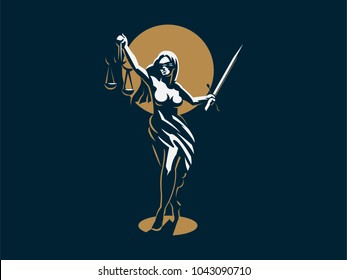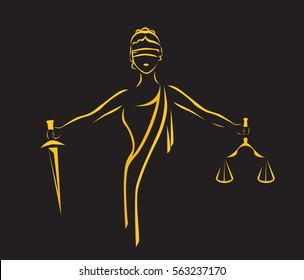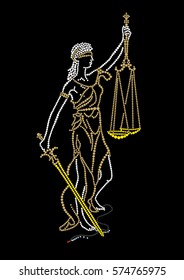Special Bailments
by
Charles Lamson
Hotelkeepers
A hotelkeeper regularly engages in the business of offering lodging to all transient persons. The hotelkeeper may also supply food or entertainment, but providing lodging to transients is the primary business.
 |
A person who provides rooms or room and board to permanent lodgers but does not behave as able and willing to accommodate transients is not a hotelkeeper. Such persons are boardinghouse keepers and the laws of hotelkeepers do not apply to them. The owner of a tourist home is not a hotelkeeper if the establishment does not advertise as willing to accommodate all transients who apply. Most people who run hotels and motels are hotelkeepers. A hotel that caters to both permanent residents and transients is a hotelkeeper only with respect to the transients.
Who are Guests?
To be a guest one must be a transient obtaining lodging, not a permanent resident or visitor. One who enters the hotel to attend a ball or other social function, to visit a guest, or to eat dinner is not a guest. A guest need not be a traveler nor come from a distance. A guest might be a person living within a short distance of the hotel who rents a room and remains there overnight.
The relationship of guest and hotelkeeper does not begin until the hotelkeeper receives the person seeking lodging as a guest. The relationship terminates when the guest leaves or makes arrangements for permanent residents at the hotel.
Duties of a Hotelkeeper
The duties of a hotel keeper include:

Duty to Serve All Who Apply
The basic test of hotelkeepers is that they hold themselves out as willing to serve without discrimination all who request lodging. However, this does not require hotelkeepers to serve someone who is drunk, someone who is criminally violent, someone who is not dressed in a matter required by reasonable hotel regulations applied to all, or when no rooms are available. If a hotel refuses lodging for an improper reason, it is liable for damages, including exemplary damages, to the person rejected.
In addition, a hotel may be liable for discrimination under a civil rights or similar statutory provision and may also be guilty of a crime if a court has issued an injunction prohibiting such discrimination. By virtue of the Federal Civil Rights Act of 1964, neither a hotel nor its concessionaire can discriminate against patrons nor segregate them on the basis of race, color, religion, or national origin. When there has been improper discrimination or segregation, or it is reasonably believed that such action may occur, the federal act authorizes the institution of proceedings in the federal courts for an order to stop such practices.
Duty to Protect a Guest's Person
A hotelkeeper must use reasonable care for the guest's personal safety. The same standard applies to the personal safety of a visitor or patron of a newstand or lunch room.
Reasonable care requires that a hotelkeeper provides fire escapes and also have conspicuous notices indicating directions to the fire escapes. If a fire starts due to no negligence of the hotelkeeper or employees, there is no liability to the guests for their personal injuries unless they could show that the fire was not contained because of a failure to install required fire safety features. In one case the court held the hotelkeeper was not liable for the loss of life on the floor where the fire started, but was liable for all personal injuries on the four floors to which the fire spread because of the negligence of the hotel.

If a hotelkeeper knows of prior criminal acts on or near the hotel premises, additional security measures may be required. However, the hotelkeeper is not liable if the guest's behavior increases the risk of criminal attack.
Duty to Care for the Guests Property
Traditionally, the hotelkeeper had a very high duty and was an insurer of the guest's property except for losses occurring from:
In every state this liability has been modified to some extent. The statutes very greatly but most limit a hotel's liability to a designated sum or simply declare that the law of mutual-benefit bailments applies.
Some states permit the hotelkeeper to limit liability by posting a notice and the guest's room. Some of the statutes require that the hotel keeper, in order to escape full liability, provide a vault or other safe place of deposit for valuables such as furs and jewelry. If a guest fails to deposit valuable articles when notice of the availability of a safe has been posted, the hotelkeeper is released from liability as an insurer.
Hotelkeepers Lien
A hotelkeeper has a lien on the baggage of guests for the value of the services rendered. This lean extends to all wearing apparel not actually being worn, such as an overcoat or an extra suit.

If hotel charges are not paid within a reasonable time, the hotel keeper may sell the baggage to pay the charges. Any residue must be returned to the guest. The lien terminates if the property is returned to the guest even though the charges are unpaid.
The lien usually attaches only to baggage. It does not apply to an automobile, for example, in most states. If a hotelkeeper charges separately for car storage, this charge but not the room charge must be paid before the car can be removed.
*SOURCE: LAW FOR BUSINESS, 15TH ED., 2005, JANET E. ASHCROFT, J.D., PGS. 172-174*
end
|

No comments:
Post a Comment